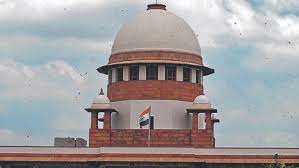The Amending Act of 1976 (Act 68 of 1976) had introduced clauses (ia) and (ib) to Section 13 and Section 13A etc. to liberalize grant of divorce. (Para 3)
The word ‘cruelty’ under Section 13(1)(ia) of the Act of 1955 has got no fixed meaning, and therefore, gives a very wide discretion to the Court to apply it liberally and contextually. What is cruelty in one case may not be the same for another. As stated, it has to be applied from person to person while taking note of the attending circumstances. (Para 5)
Though Section 23(1) 2 of the Act of 1955 speaks of condonation of cruelty by the petitioner in a divorce petition filed on the ground of cruelty, and thus non-suiting a decree of divorce, it has to be seen in context with the position of a man and woman in a marital relationship. In other words, Section 23(1) of the Act of 1955 is a word of caution to check cases of abuse and misuse of law to get relief. To elaborate, due to her unenviable position, a wife may not (Para 13)
It shall be the duty of the court in the first instance, in every case where it is possible so to do consistently with the nature and circumstances of the case, to make every endeavour to bring about a reconciliation between the parties (Para 14)
Secondly, the court must also keep in mind that the home which is meant to be a happy and loveable place to live, becomes a source of misery and agony where the partners fight. When there are children they become direct victims of the said fights, though they may practically have no role in the breakdown of marriage. They suffer irreparable harm especially when the couple at loggerheads, remain unmindful and unconcerned about the psychological and mental impact it has on her/him. (Para 15)
We have very little to say on facts, especially upon hearing the learned counsels at the Bar. They do speak for themselves. The marriage was solemnized in the year 2002. It fell into rough weather after the birth of their child. Disputes started between the parties from 2006 onwards. The appellant–Wife registered a complaint under Section 498A of Indian Penal Code, 1860 and Sections 3 and 4 of the Dowry Prohibition Act, 1961. The respondent-Husband had questioned the character of the appellant-Wife. A plea was also taken in the counter affidavit filed in the petition for divorce. Incidentally, it was contended that it was she who had fled the matrimonial home. The respondent-Husband also demanded a medical examination of the appellant–Wife, alleging she was living in adultery and had given birth to a child during the period of non-cohabitation. The said request was nullified by the Order of the High Court. (Para 16)
For a decade and half, the parties have been living separately. As fairly stated at the Bar, the marriage does not survive any longer, and the relationship was terminated otherwise except by a formal decree of divorce. The status quo continues, awaiting an approval from this Court. (Para 17)
The Trial Court and the High Court adopted a hyper-technical and pedantic approach in declining the decree of divorce. It is not as if the respondent- Husband is willing to live with the appellant–Wife. The allegations made by him against her are as serious as the allegations made by her against him. Both the parties have moved away and settled in their respective lives. There is no need to continue the agony of a mere status without them living together. (Para 19)
For the reasons aforesaid, we are inclined to set aside the judgment of the Trial Court as confirmed by the High Court of Chhattisgarh in F.A. (M) No. 115 of 2011. Accordingly, they are set aside and the appeal stands allowed by granting a decree of divorce. (Para 20)
SUPREME COURT OF INDIA
2023 STPL(Web) 249 SC
[2023 INSC 814]
Smt. Roopa Soni Vs. Kamalnarayan Soni
Civil appeal no. 5700 of 2023 (Arising out of SLP (C) No.15793 of 2014)-Decided on 6-9-2023
https://stpllaw.in/wp-content/uploads/2023/09/2023-STPLWeb-249-SC.pdf







